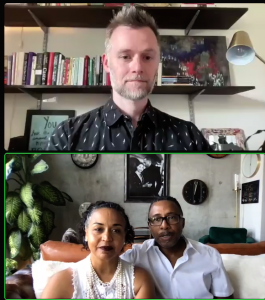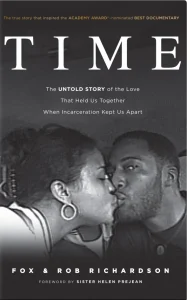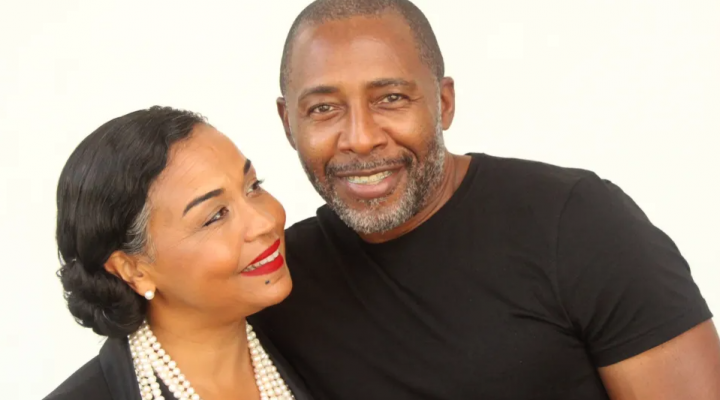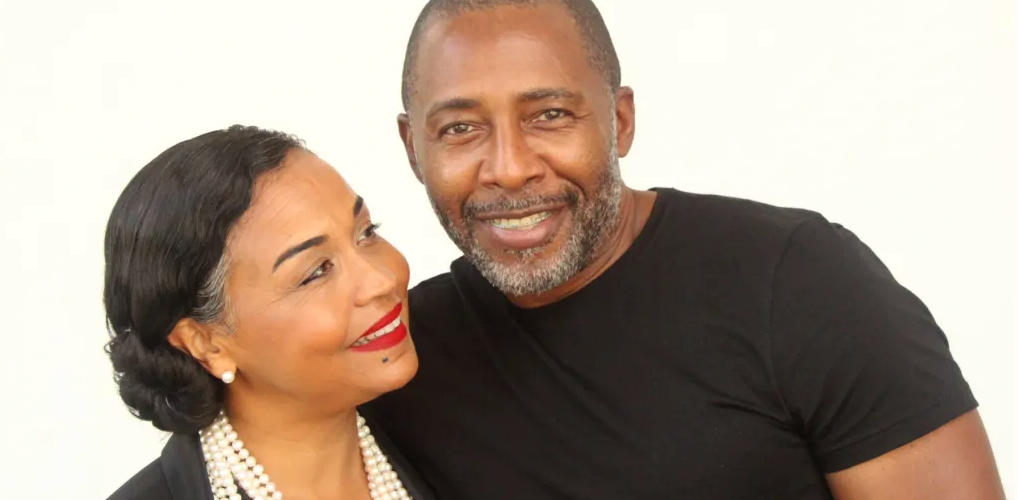The U.S. prison system intentionally promotes recidivism rates high enough to guarantee the continued existence and growth of a thriving, profit-driven incarceration system, according to Fox Richardson, the subject of an Academy Award-nominated documentary about the power of faith over imprisonment.
“This monstrosity of a system has been so finely designed and engineered that it is a whole system — just like slavery,” Richardson said April 27 during an “In the Movement” webinar presented by Equal Justice USA.
Richardson and her husband, Rob Richardson, were the focus of Time, a 2020 documentary that follows her struggle to win his release from Louisiana’s notorious Angola prison, where he was serving a 61-year sentence for armed robbery. Since his clemency in 2018, the couple wrote the 2023 book Time: The Untold Story of the Love that Held Us Together When Incarceration Kept Us Apart and have launched ministries to help others cope with the U.S. legal and prison systems.

Sam Heath (top image) talks with Fox and Rob Richardson
During their conversation with moderator Sam Heath, manager of EJUSA’s Evangelical Network, the Richardsons spoke about the importance of their Christian faith in sustaining them during his period of incarceration, the challenges she faced raising six boys during their faither’s imprisonment and their assessment of what Heath described as the U.S. “prison industrial complex.”
Fox Richardson compared the economics of modern imprisonment to that of American slavery.
“It wasn’t just that slaves were being bought and sold. It was the people that made money off the auction block,” she said. “It was the people who made money for bringing the slaves from across the waters to this country. It was the people who made money holding the enslaved until they made it to the auction block.”
Likewise, the “industrialized complex” of American incarceration supports local economies through jobs, through prisoner labor and even the charges inmates pay to access phones, emails and commissary goods.
High recidivism rates are maintained by lack of education and training for inmates, which in turn keeps the prison economy going, she added. “Why are we not holding this system accountable, because it means it failed to do the things required to be done to help people get reestablished and make their way and not come back.”
Heath argued it’s a misnomer to describe the U.S. justice system as broken.
“It is functioning the way it is meant to, benefitting those it was meant to benefit, harming those it was meant to harm.”
“I think it is functioning the way it is meant to, benefitting those it was meant to benefit, harming those it was meant to harm,” he said. “So, by that measure, it’s working and it requires only our silence and our complicity for it to continue. And that cycle, that entity, that complex unless things come in to interrupt it, and that has to be systemic and individual, too.”
Individuals dealing with incarceration must turn to faith to endure and overcome their situations as families or inmates, Rob Richardson said.
“What we were hopeful to demonstrate in the book, that we didn’t necessarily convey in the film, is that no matter what it is you’re faced with, as long as you never give up, you can overcome whatever challenges are being placed upon you,” he said.
That optimism is based in part on the release from prison granted to Richardson by Louisiana Gov. John Bel Edwards.
 “We were the only incarcerated family in 2018 that received clemency from our governor, so that speaks volumes of what kind of miracles God performed for us,” said Fox Richardson, who advocated for her husband’s release for more than two decades.
“We were the only incarcerated family in 2018 that received clemency from our governor, so that speaks volumes of what kind of miracles God performed for us,” said Fox Richardson, who advocated for her husband’s release for more than two decades.
Two months later, the couple launched Rich Family Ministries and Participatory Defense Movement New Orleans, which employ community organizing techniques to reduce sentences and restore families torn apart by incarceration. Rob Richardson said Scripture and a seminary degree earned in prison provided him the skills used in the ministry and shared in the book.
“We were hopeful to be able to give them some helpful tools they could put in their toolbox to navigate that system in order to reunite their families,” he said.
It boils down to replacing the fear and anger rampant in the U.S. justice system with a faith in the God that helped the Joseph of the Bible survive and eventually end his incarceration in Egypt, Richardson said.
“Anger was not the answer. Violence was not the answer. Love was the only valid thing that mattered. God is love, and love is God. They share equal power.”
Related articles:
What I learned working in a Texas prison: Retribution, not reformation | Opinion by Michael Chancellor


